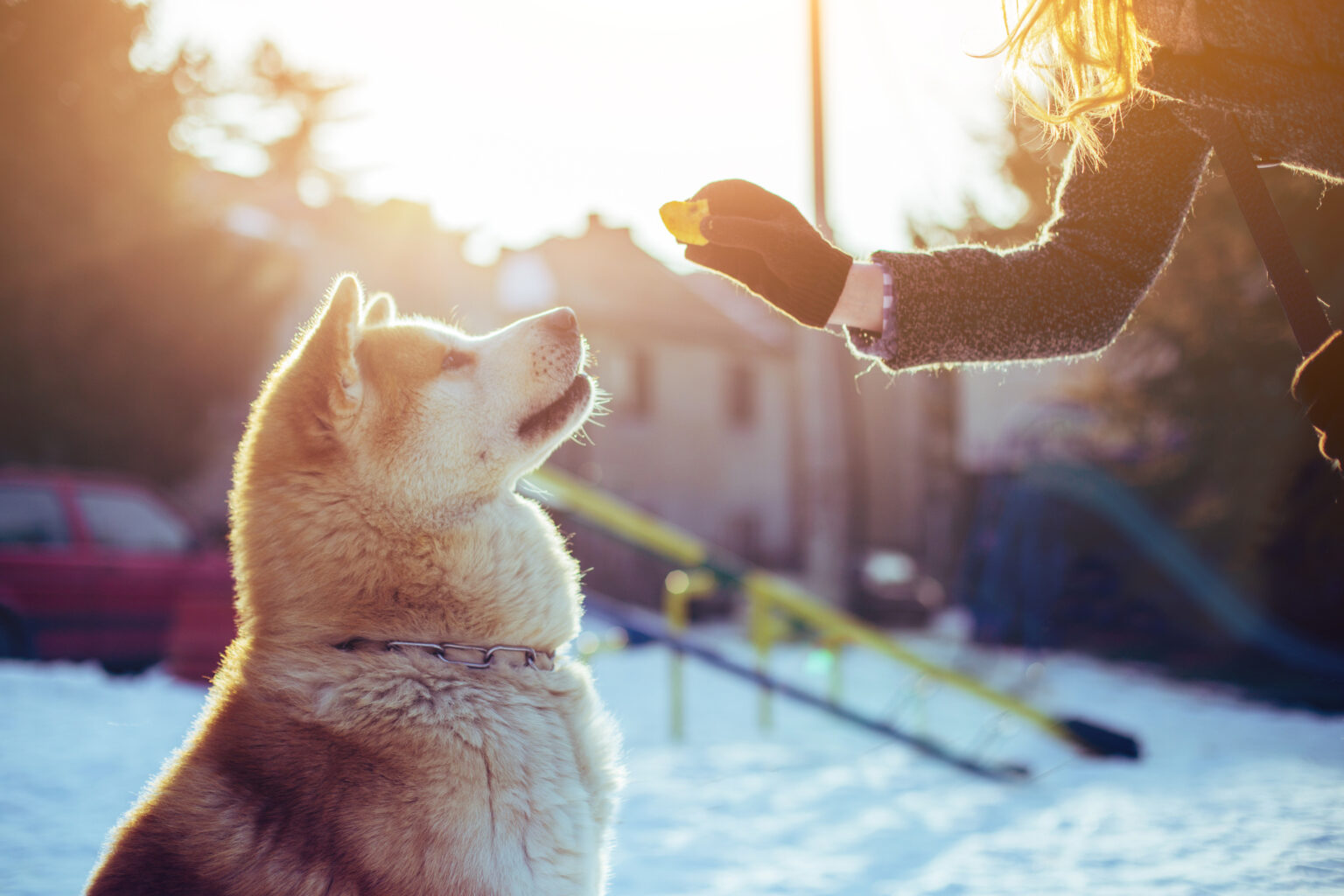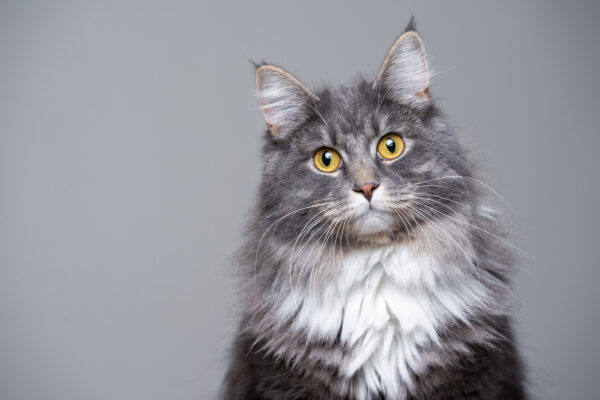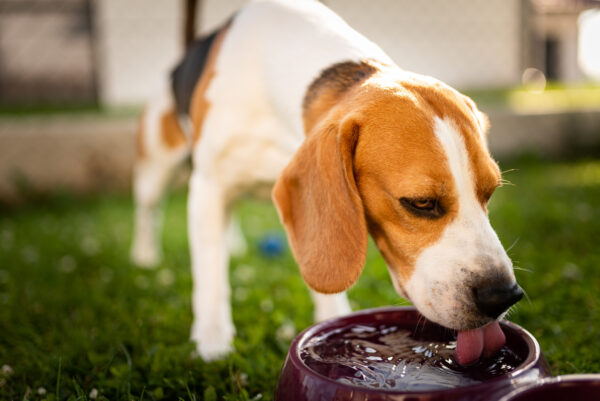As winter approaches, our daily routines will change, with dropping temperatures meaning we leave the house less frequently. Generous meals keep us warm, while spending more time indoors means we spend less time being active. Our pets are the same, so should we change their diet to reset the balance?
We should consider each pet individually to answer the question adequately.
How the cold affects your dog
Your pet’s environment is first on the checklist. Much like a wild animal would need more calories to take on a rough winter, a pooch that spends greater periods of time outside or in an outdoor kennel will have a greater need for food to keep warm. These extra calories that the body calls for, will help build a layer of fat in the body, keeping them insulated against lower temperatures. So, the rule here is a simple one: the lower the temperature that your pet is frequently exposed to, the more calories they need to thrive.
By contrast, a dog that lives indoors with central heating won’t need more food to sustain them. If their physical activities decrease, they may even need to eat a little less. This leads us to our next topic: exercise.
You’re not alone if maintaining your regular dog walks becomes more of a challenge during the winter months. Leaving the house when it’s cold and dark isn’t too appealing, but physical activity is so beneficial to both us and our pets, so it’s very important that we stay as active as we can and prevent weight gain during the cooler months.
And how about colder weather and cats?
A study from the University of Liverpool shows that researchers discovered cats have a natural tendency to eat more than usual during winter. For the purpose of this study, they spent four years closely monitoring the eating patterns of 38 cats, and they discovered that they eat approximately 15% less during the summer months.
In this study, cats were allowed to exercise and play outside all year round, suggesting that much like dogs, outdoor cats might require more food in the winter while indoor kitties that don’t get exposed to seasonal changes, don’t. In a similar vein, an outdoor cat that prefers to curl up by the fire and stay indoors during autumn and winter will need the same amount, maybe even less, than during spring and summer.
One of the study authors concluded that “Cats, like many humans, are more inclined to comfort eat when it’s cold outside but, in their case, this is likely to be due to the extra energy they need to keep warm when out and about.”
In conclusion
As with most things, how much food you give your cat or dog during the winter will depend on your specific pet. Their body condition, fitness levels and routines should guide you.
This means if there’s a significant increase in your pet’s physical activity or they spend more time outside, they may need extra food. In the case of indoor cats, changes in daylight length and outside temperatures might trigger a natural instinct to eat more, but modern homes and artificial heating make this particularly unlikely. For pets that exercise less during the colder months, their food intake should be reduced. Cut down a little on the treats they have in the first instance and if they need further calorie control, then work with your vet to reduce the portion size of their main meals.
Care tips for the winter
If your daily walk is becoming a real struggle, find new ways to stay active. This might be a shorter route, taken more frequently, or giving some new toys to your dog to encourage longer play sessions indoors. Arranging walks with other dog walkers can help too.
If temperatures in your area drop significantly overnight, we recommend keeping your outdoor cats inside, preventing any dangers of freezing or damage to their paws.
Your pet’s fur coat offers important protection when it gets cold. Make sure it’s in top condition with a solid grooming routine. Brushing your pet regularly, will help to remove excess fur – something that you’ll be grateful for during the moulting period.
As a final note, it might not be noticeable to us, but cold winter air can be particularly dry. Make sure your pet is hydrated, with lots of water available to them and plenty of encouragement to sip regularly.



